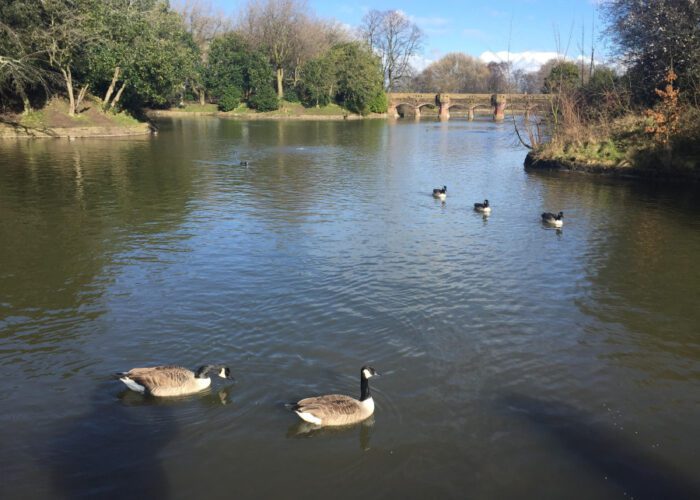
Liverpool’s Stanley Park has launched a campaign to stop people from using bread to feed its ducks and geese, in a bid to keep its pond clean.
The move comes after research conducted by the Canal & River Trust revealed that uneaten, soggy bread can cause a build-up of bad nutrients which can lead to greater algae growth, spread disease and encourage pests such as rats in ponds.
Community and Park Animation Manager at Stanley Park, Rachael O’Byrne, told JMU Journalism: “We’ve launched this campaign in the park as part of our community development work. We want to educate people about keeping ducks and geese healthy as well as looking after the environment.
“Feeding ducks and geese is a fun activity for families and it’s brilliant to see people engaging with the local wildlife seven days a week in Stanley Park; many people don’t know bread is bad for the animals, so we hope our campaign will raise awareness.”
Not only is the bread unhygienic and damaging to our ponds it’s not actually part of a duck’s diet, which is typically made up of small fish and worms, and acts as junk food would to humans.
Peter Birch, National Environment Manager for the Canal & River Trust, said: “Bread’s not great for a duck’s health as it’s nothing like their natural diet so don’t over feed them with large quantities of it. Try to vary what you give them and swap it for healthier, more natural treats like oats, corn, or defrosted frozen peas.”
The Canal & River trust estimates that every year six million loaves of bread are being thrown into ponds, canals and rivers throughout England and Wales, polluting the water and damaging hundreds of thousands of duck habitats.
The age-old tradition of throwing bread can also create an overcrowding of bird populations as birds will flock to the same location in search of their treat. This means there will be excessive amounts of bird droppings which can have a negative effect on water quality and create harmful algae which can clog the waterway.

